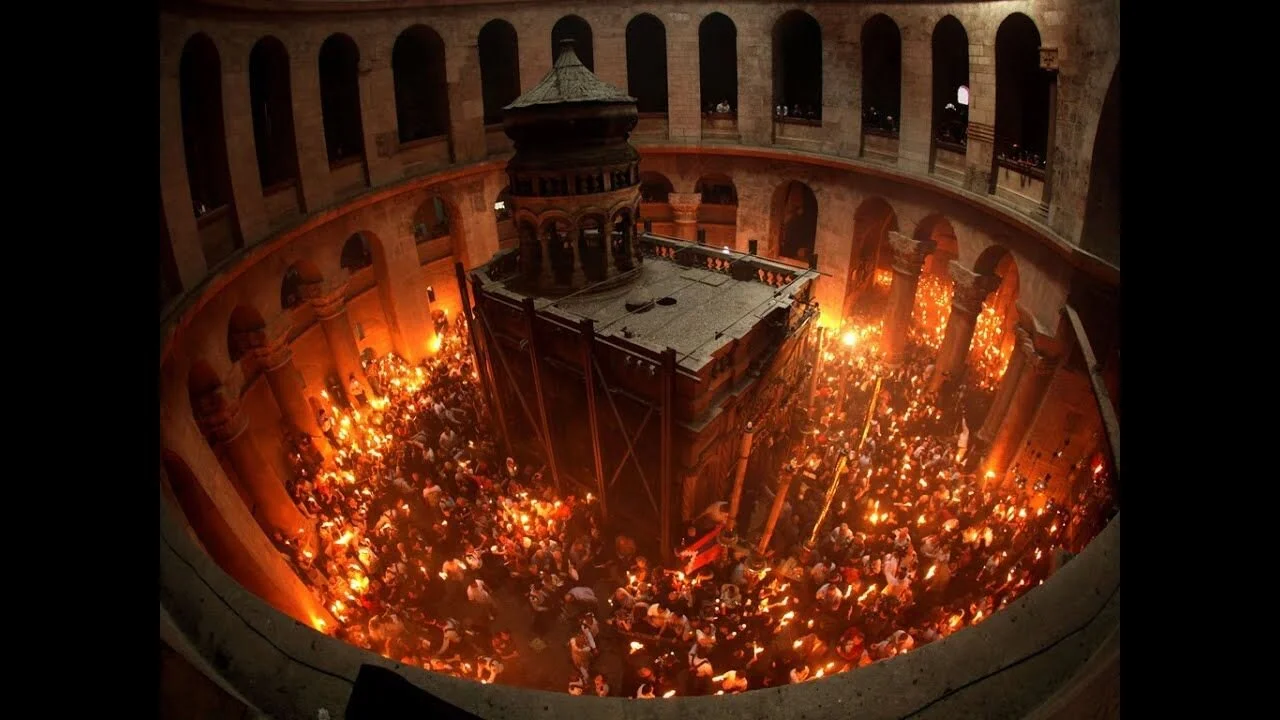Holy Light
Easter is among the holidays on which you’re most likely to be set on fire.
In the past, I’ve mentioned a few times how different holidays have their own unique health risks. In the past, I’ve mostly focused on Christmas, because that’s the holiday which seems to have gotten the most attention in research, but we’re in the middle of some holidays right this moment too. If you celebrate something this Spring, then at the time that I’m writing this, you might be just after Easter, just before Easter, counting down the last hours of Passover, or taking part in International TableTop Day, which I only just today learned is apparently a real thing. Christmastime might be when you’re most likely to be suicidal, but apparently Easter is when you’re most likely to be set on fire.
I’m being a little bit facetious here, of course. There really is an association between Easter and severe burn injuries, but it isn’t a universal risk. Easter is celebrated very differently in different parts of the world, including being celebrated weeks apart by Orthodox and other Christians. In Greece in particular, Easter has long been celebrated with fireworks, and on the island of Chios, with “rocket wars” wherein people launch homemade fireworks at each other. According to numbers published by one Athenian hospital, a noticeable spike in burns is seen in the Easter period, particularly in males aged 25 to 30, an age group not widely known for its good sense and healthy lifestyle choices. Most of the burns were fairly minor, but several cases included broken bones and limb amputations and in one cases, as the proverb goes, it was all fun and games until someone lost an eye. This particular health problem seems to be something pretty much related to Greek celebrants, and indeed, arguably most cultures don’t celebrate their holidays quite as forcefully as the Greeks do. Firework injuries are common in the UK around Guy Fawkes Night (unsurprisingly), Denmark around New Year’s, and the US around Independence Day, but Greece is where firework injuries are most associated with a religious holiday, and they’re therefore wielded with a concomitant enthusiasm.
Fire is a common feature in religious celebrations in medieval fantasy, where many of the gods favoured by players and player characters tend to be associated with flame or light. In our world, fireworks didn’t really make their way out of Asia until around the 1200’s and didn’t catch on in Europe until the 1700's, but quasi-magical alchemy, Dwarven black powder, gnomish ingenuity and a lack of widespread public regulation mean that our characters often have ready access to fireworks that exceed anything modern pyrotechnicians might come up with. When festival time comes around, I’d almost be surprised if there aren’t villages here and there that have to completely rebuild every year after particularly enthusiastic celebrations. Needless to say, one might imagine this to be particularly true in campaign settings influenced by historical Greece.
That’s one holiday, anyway, but not necessarily the most dangerous one, and even if you aren’t celebrating Easter, you still might not be without risk factors during this holiday season. It turns out that at Passover, there’s a significant spike in broken bones, and especially broken hips. This is probably because at Passover, families get together for the traditional Seder meal, and in all the hustle and bustle there’s an unfortunate tendency for elderly relatives to fall down and break something. This, coupled with reports of actual life-threatening constipation from eating matzo, makes Passover a perilous time of year for the unwary, all of which really goes to show that any sort of celebration comes with its attendant health hazards.

More than four years ago, Dr. Eris Lis, M.D., began writing a series of brilliant and informative posts on RPGs through the eyes of a medical professional, and this is the one that appeared here on April 11, 2015. Lis is a physician, gamer, and author of the Skirmisher Publishing LLC OGL sourcebook Insults & Injuries, which is also available for the Pathfinder RPG system.





